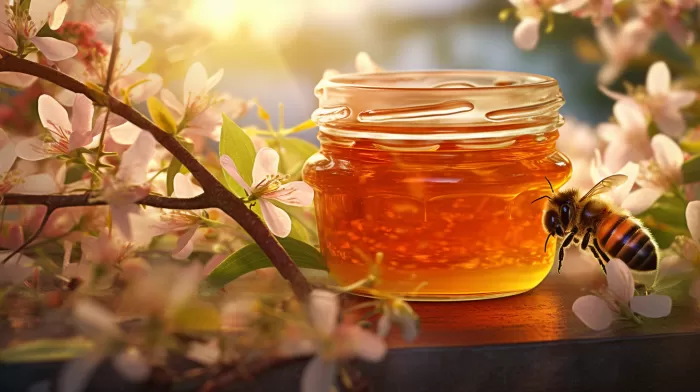Spring has arrived, and with it comes the dreaded seasonal allergies. With around 60 million people in the US affected by them, and numbers on the rise, many are stuck dealing with the unpleasant symptoms such as sneezing, stuffy or runny nose, watery eyes, and sinus headaches. Fortunately, there are several natural remedies available to help alleviate the discomfort without resorting to pharmaceuticals.
Balancing Immune Defenses and Reducing Inflammation
One beneficial method is to address the problem holistically, focusing on long-term relief. This can involve balancing immune defenses, reducing chronic inflammation, clearing sinuses, and reducing histamine reactions. To do this, consider incorporating the following into your daily routine:
- Nutrients and herbs like quercetin, vitamin C, nettle, and Bromelain
- Anti-allergy foods such as capers, apples, berries, and greens
- Homeopathic allergy preparations
- Natural detoxification
- Dietary changes like eliminating inflammatory foods like gluten, sugar, and trans fats
- Neti pot therapy for nasal congestion and irritation
- Natural stress relief and mind-body balancing through yoga, meditation, and tai chi
The Local Honey Theory
Another popular home remedy is consuming local honey. The theory behind using honey for allergies is similar to the idea of vaccinations, which involve introducing a safe amount of a pathogen to your system to encourage your body to develop immunity to that same pathogen.
Several studies have been conducted on the effectiveness of honey for allergies, but the results have been mixed. A 2011 study focusing on individuals allergic to birch tree pollen found that those treated with honey specifically created from birch pollen had significantly better control of their symptoms than those treated with conventional medication only.
However, a 2002 study conducted by the University of Connecticut Health Center yielded different results. Participants were split into three groups, with one group consuming a tablespoon of local, unpasteurized, unfiltered honey per day, the second group consuming nationally collected, pasteurized, filtered honey, and the third group consuming a honey-flavored placebo. The results of this study revealed no definitive difference in allergy relief among the three groups.
The Benefits of Raw Honey
While the effectiveness of local honey for allergy relief remains uncertain, there’s no doubt that honey has numerous health benefits. For example, raw honey has demonstrated powerful effects against drug-resistant bacteria. Just be cautious with your honey intake if you’re dealing with metabolic issues or you’re looking for an alternative allergy relief.
In conclusion, the most effective remedy for allergies may vary on your body and personal experiences. While some might find relief in consuming local honey, others might find more success with a holistic approach to address immune defenses and inflammation. Keep this in mind as you seek relief during allergy season, and consider sharing your experiences with others struggling with similar symptoms.



